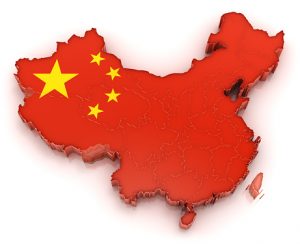 China has responded to President Trump’s new tariffs by threatening tariffs of its own. Beijing is planning to place 25 percent levies on a range of U.S. goods worth about $50 billion. The list of products that would be affected includes soybeans, cars, whiskey, and some airplanes. Chinese officials did not set a date for implementation.
China has responded to President Trump’s new tariffs by threatening tariffs of its own. Beijing is planning to place 25 percent levies on a range of U.S. goods worth about $50 billion. The list of products that would be affected includes soybeans, cars, whiskey, and some airplanes. Chinese officials did not set a date for implementation.
The White House recently unveiled plans for tariffs on $50 billion in Chinese imports across 1,300 categories. The 25 percent levies proposed by the president would affect wide range of Chinese goods, including electronics, machinery, phones, shoes, and furniture. Trump has argued that the tariffs are needed to respond to Chinese trade practices that have unfairly hurt U.S. businesses.
The speed of the response from Beijing came as a surprise, with the Chinese announcement coming a day after President Trump announced his tariff plans. China’s envoy to the World Trade Organization said Beijing would challenge the U.S. moves. The issue is quickly becoming a tit-for-tat trade war. President Donald Trump tweeted on the matter, saying, “We are not in a trade war with China, that war was lost many years ago.”
The focus by China on U.S. soybean exports could have a particularly big impact on the United States. Soybeans are the top U.S. agricultural export to China. Terry Branstad, current U.S. ambassador to China, is the former governor of Iowa, a top producer of soybeans. Representatives from the Iowa Soybean Association have met with him in China to plead their case.
Soybeans immediately dropped as much as 5.3 percent on the Chicago Board of Trade after China announced the retaliatory tariffs. Wheat and corn futures also fell. Farm states generally backed Trump in the 2016 election, but their anger could create political problems for Trump.
The problems between the world’s two largest economies could also cause issues for other countries. The news had an immediate impact on markets. In Europe, all major markets opened lower. South Korea’s main exchange was down more than 1 percent, while Hong Kong’s Hang Seng Index dropped 2.2 percent.
